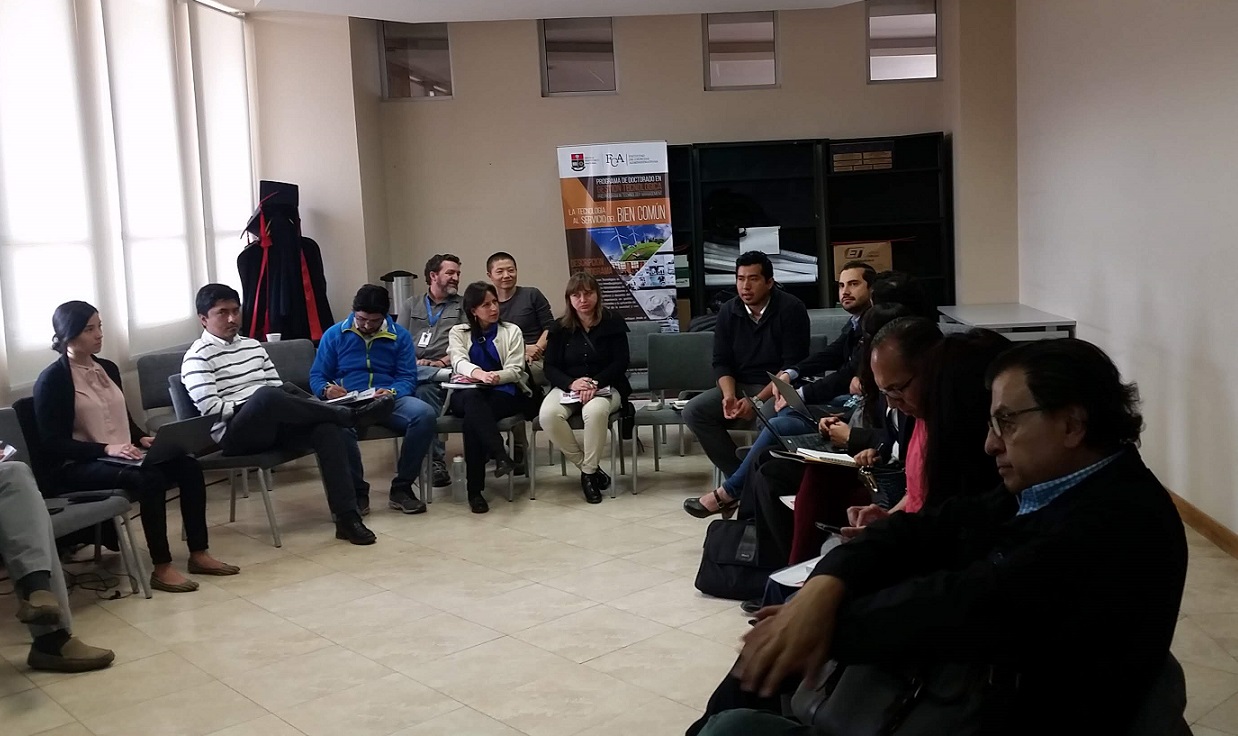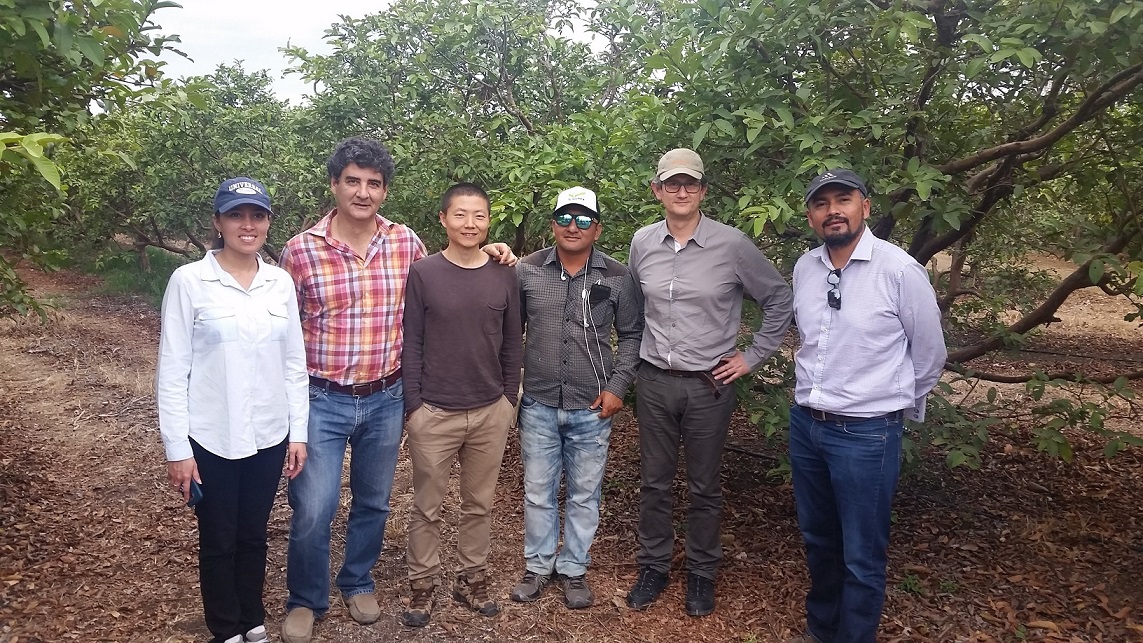Profile
Prof Xiaoyu Yan
News - 2018
22 December 2018
Rob just published the second paper from his PhD - "Environmental optimisation of mine scheduling through life cycle assessment integration". Congratulations Rob!
12 November 2018
Xiaoyu is involved in a successful CUHK-Exeter Joint Centre for Environmental Sustainability and Resilience (ENSURE) grant led by Catherine Caine (Law School) and involving Ian Bateman, Brett Day, Annalisa Marini and Michela Faccioli in the Business School and Cornelia Guell in ECEHH within Exeter as well as collaborators in the University of Queensland in Australia and Tsinghua University in China. The title of the project is Global Food Security, Climate Change and Resilience: An International Perspective. It will run for 2 years from Jan 2019 to Dec 2020 and will receive £135,000 from Exeter and HK$1,000,000 from CUHK. The project will seek to address three key questions: 1) What are the current and potential future human health impacts of environmental degradation, including air and water pollution and greenhouse gas emissions, caused by agricultural intensification? 2) At what cost are consumers willing to pay to alleviate negative environment impacts resulting from agricultural production? Will there be different attitudes due to income and cultural background? 3) What policy or legal options are available to alleviate climate change and minimize environmental impacts resulting from agricultural intensification and changes in consumer choices?
30 October 2018
New paper “Applying and advancing the economic resource scarcity potential (ESP) method for rare earth elements” by Rob just published!
27 September 2018
The group welcomes new members Dr Anshul Paneri and Xiang Li. Anshul is a Research Associate on the IMP@ACT project and will be working on designs of renewable energy supply systems for small-scale mobile mining applications. Xiang is a PhD student funded through the China Scholarship Council and University of Exeter PhD Scholarship. He will be working on a topic around Energy, Air Pollution and Human Health.
16 September 2018
Xiaoyu spent a week in Ecuador attending the kick-off meeting and stakeholder engagement events of a new Water-Energy-Food-Environment Nexus project NEXT-AG: NEXus Thinking for sustainable AGricultural development in Andean countries. This was a very fruitful trip that will ensure the key stakeholders in the water, energy, agricultural sectors in Ecuador are involved throughout the project.
7 September 2018
Xiaoyu attended the last WEFWEBS project meeting held at Imperial College London. The consortium members reflected on the challenges, achievements and potential legacies of the 3-year interdisciplinary Water-Energy-Food Nexus project.
31 August 2018
Xiaoyu attended the 9th edition of the international SOLARIS conference during August 30-31, 2018, in Chengdu, China. He presented a poster titled “Challenges and research needs in LCA of building-integrated photovoltaics (BIPV)”.
25 August 2018
Xiaoyu attended the 10th International Conference on Applied Energy (ICAE2018) during August 22-25, 2018, in Hong Kong, China. He gave a talk on “Infrastructure-Integrated Photovoltaic (IIPV): a boost to solar energy’s green credentials?”
06 August 2018
Xiaoyu attended the 2018 China-UK Workshop on Renewable Energy Systems in Zero Carbon Villages funded by the National Natural Science Foundation of China (NSFC) and British Council. He gave a talk titled “Integrated Systems Thinking for Low Carbon and Sustainable Development”. The workshop was held in Lhasa, Tibet, an area of China with outstanding natural beauty and ecological importance.
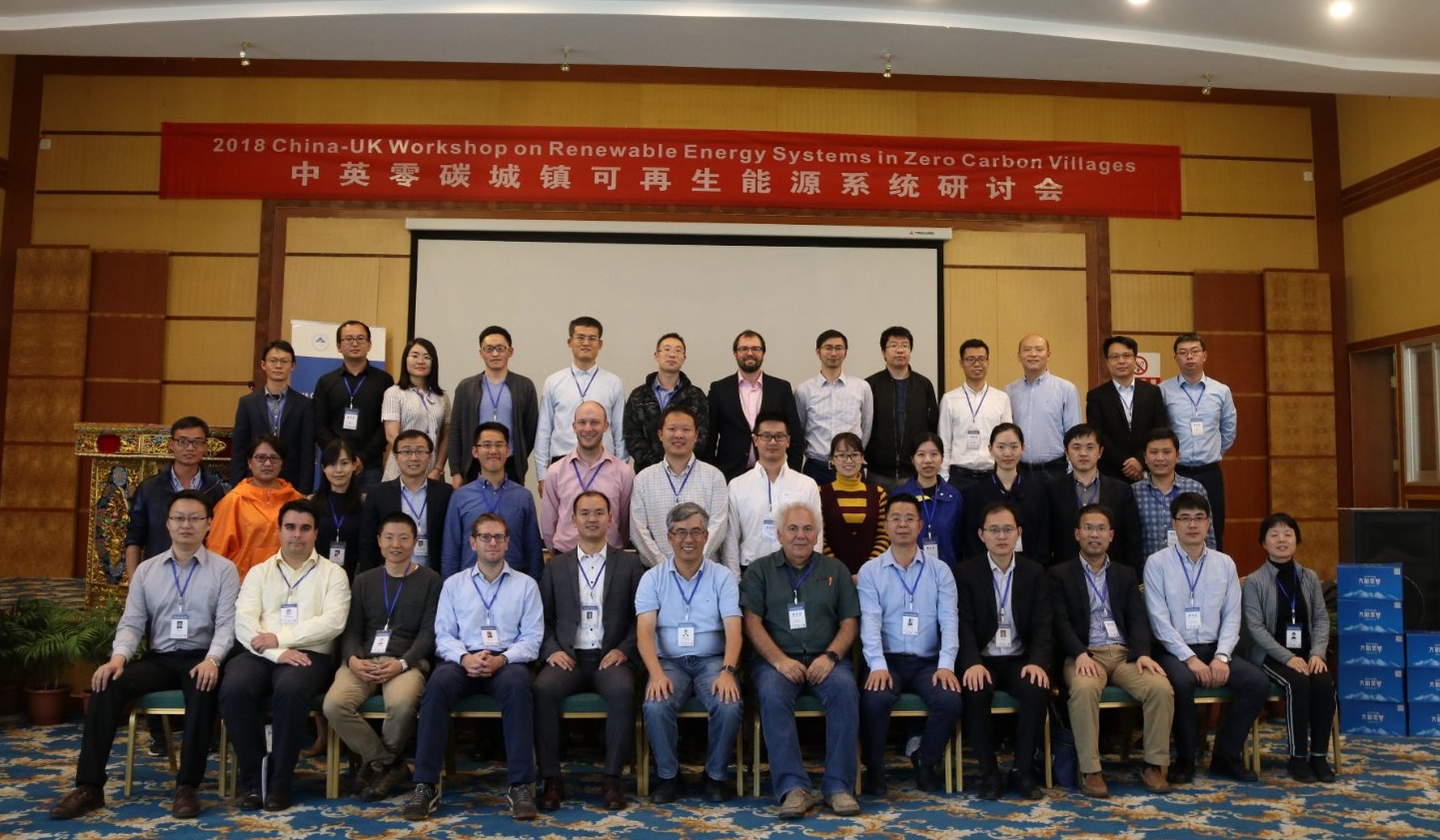
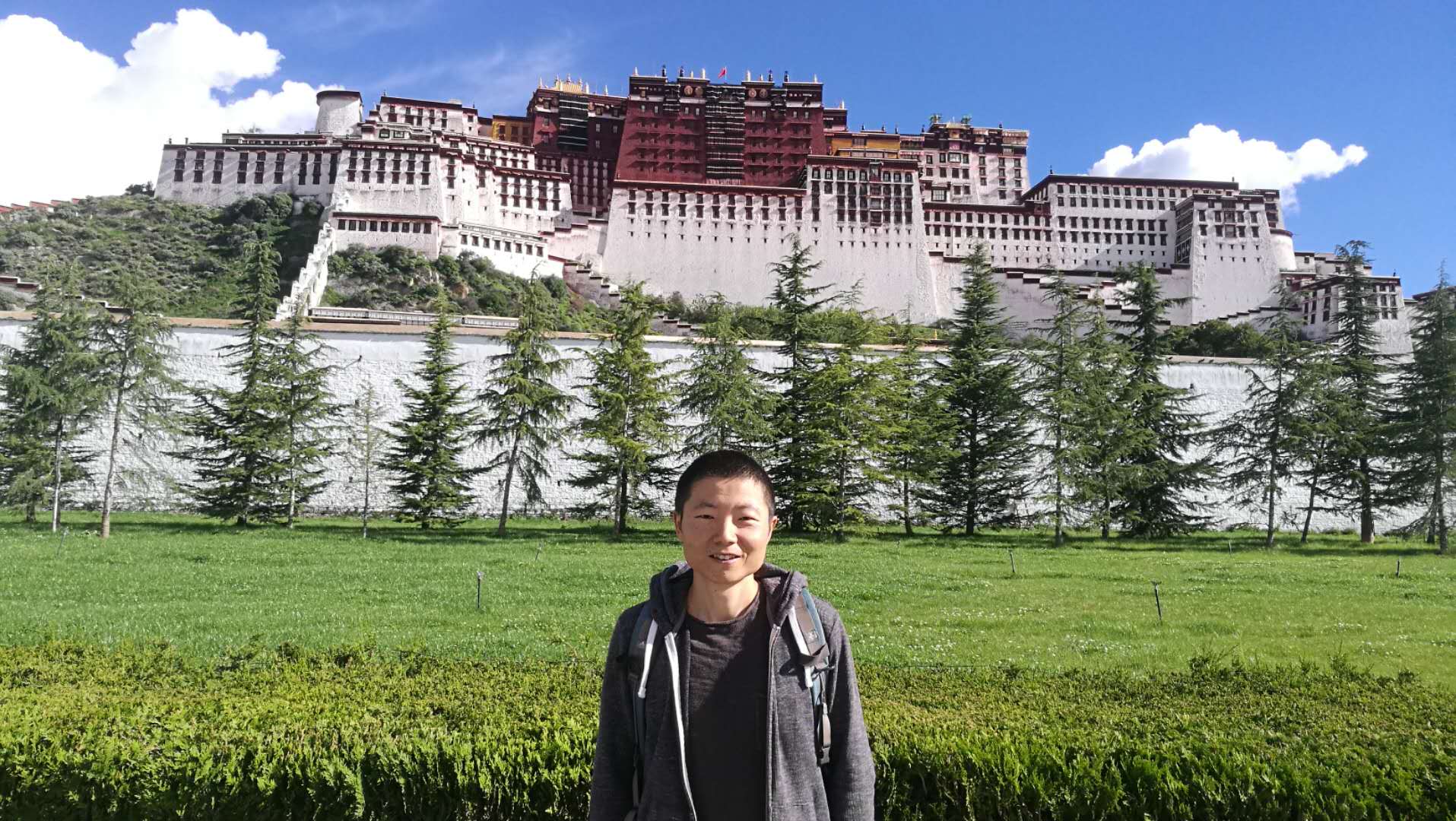
02 August 2018
Xiaoyu attended the CYWater 2018 Summer Meeting – Hydrology Frontiers & Extension hosted by the Institute of Geographic Sciences and Natural Resources Research, Chinese Academy of Sciences. He gave an invited talk titled “Water-Energy Nexus: from Trade-offs to Synergies”.
30 July 2018
Xiaoyu visited the School of Environment, Tsinghua University, where Rob is doing a placement supported by the British Council/Newton Fund UK-China Joint Research and Innovation Partnership Fund. Xiaoyu explored opportunities to build long-term collaborations with the Urban Mining group around circular economy and environmental sustainability.
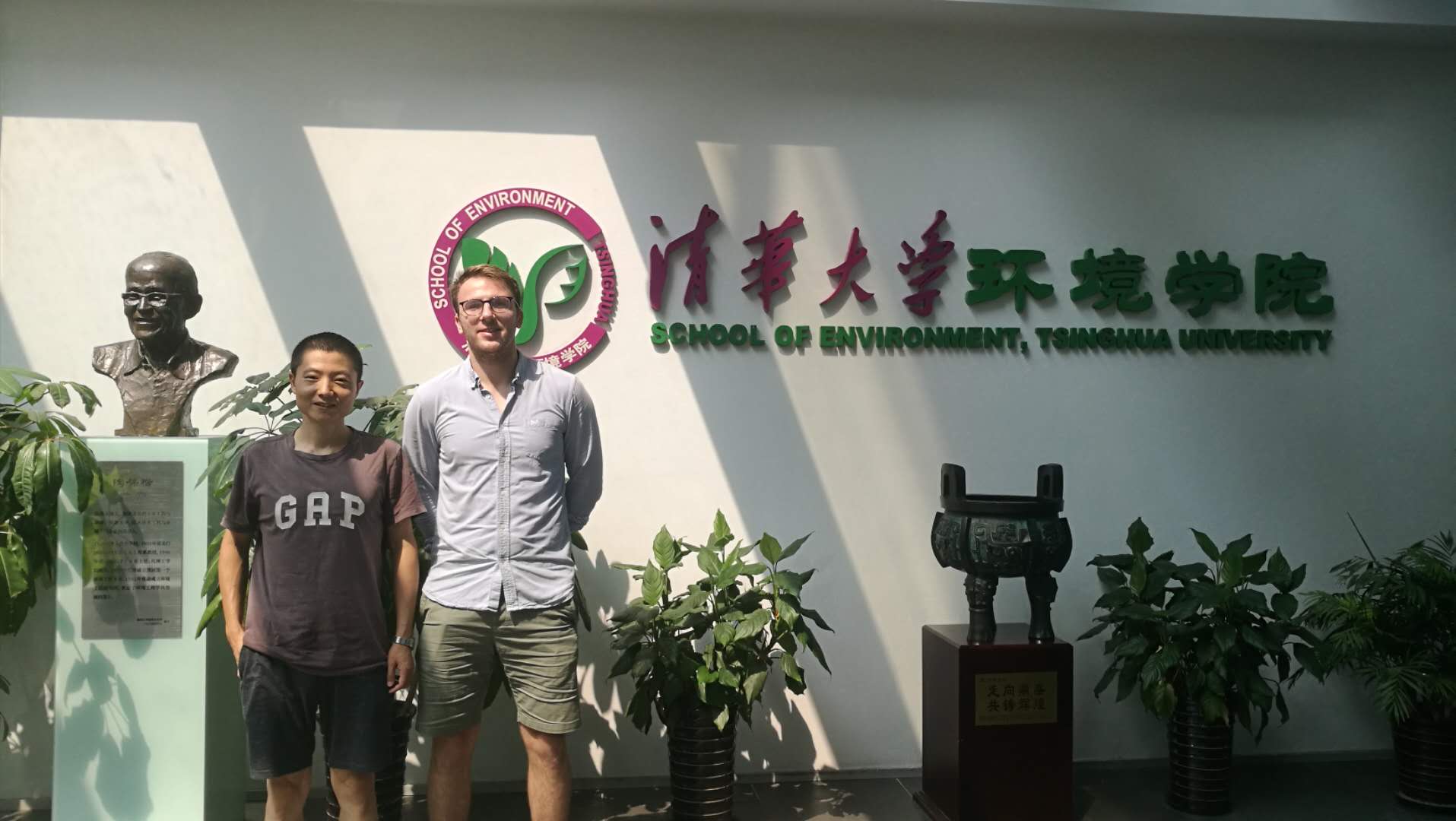
04 June 2018
The group welcomes new member Dr Kyle Roskilly. Kyle is an Industrial Impact Fellow on the EG4B project and will be working on the development of a sensors network to collect data on resource use and waste generation from businesses.
30 May 2018
New paper “Scaling the nexus: Towards integrated frameworks for analysing water, energy and food” from the WEFWEBS project. In this paper, we elucidate many challenges that have arisen across nexus research, including the impact of multiple scales in operation, and concomitantly, what impact these scales have on data accessibility. We also assess some of the critical frameworks and tools that are applied by nexus researchers and articulate some of the steps required to develop from nexus thinking to an operationalisable concept, with a consistent focus on scale and data availability.
18 April 2018
New paper Development and application of a life cycle greenhouse gas emission analysis model for mobile air conditioning systems co-authored with colleagues from Institute of Energy, Environment and Economy, Tsinghua University. Mobile air conditioning (MAC) is potentially a huge source of greenhouse gas (GHG) emissions in China from a life cycle perspective as the vehicle population increases in the future. We developed the MAC-GHG-LCA model to calculate life cycle GHG emissions from MAC systems, covering life-span refrigerant leakage (direct emissions) and emissions caused by energy use in MAC system production and operation (indirect emissions).
11 April 2018
New research grant! Xiaoyu is successful in getting a grant led by Cranfield University funded by NERC through the Newton Fund under the RCUK-CONICYT (Chile) Broadening Impact Call. The grant is £730K in total, £497K contributed by UK and £233K by Chile. The 3-year project is titled NEXus Thinking for sustainable AGricultural development in Andean countries (NEXT-AG).
Securing a sustainable supply of water, energy and food while at the same time protecting the environment is a key global issue. Traditionally, policymaking for each sector (food, water, energy and environment) has been designed largely in isolation, without consideration of the synergies and trade-offs between them, leading in some cases to overexploitation of natural resources, increasing competition between sectors and negative externalities. This has been the case of the agricultural expansion planned in Ecuador and Peru during the last decades to take advantage of a growing international market. By unpacking synergies and trade-offs through a WEFE (Water-Energy-Food-Environment) nexus approach, the aim of the NEXT-AG project is to provide policymakers in those countries with the needed evidence base that allows them to develop new coordinated policies and programmes for increasing resilience and promoting sustainable economic growth in the context of increasing national and global food demand. Focusing on Ecuador and Peru, this project will:
a) Study the implications of increasing food production and associated policies on availability of water, energy and other natural resources for other sectors and the environment;
b) Develop an integrated modelling framework in collaboration with stakeholders to evaluate how current and future policies will impact on the WEFE nexus for food provision services and the trade-offs in the context of increasing food demand and exports to international markets;
c) Inform future WEFE policies in the countries under study, leading to the sustainable use of natural resources and economic growth.
10 April 2018
New paper Development and application of China provincial road transport energy demand and GHG emissions analysis model co-authored with colleagues from Institute of Energy, Environment and Economy, Tsinghua University. We developed a novel bottom-up model to estimate the future energy demand and GHG emissions of China’s road transport at a provincial level, considering local economic development, population and policies.
1 March 2018
The group welcomes new members Dr Victor Kouloumpis and Tianduo Peng. Victor is a Research Fellow on the CEReS and ICE projects and will be working on LCA of energy systems and the CEReS process. Tianduo is a visiting PhD student from Institute of Energy, Environment and Economy, Tsinghua University. He will be working with Xiaoyu on LCA of electric vehicles for 6 months from March to August 2018. We also say farewell to James Miller who will be moving to another country. All the best James!
21 February 2018
New paper “Food-energy-water nexus: a life cycle analysis on virtual water and embodied energy in food consumption in the Tamar catchment, UK” from the WEFWEBS project. It demonstrates, from a food consumption perspective, the potential of life cycle thinking in understanding the complex and often “hidden” linkages between Food-Energy-Water (FEW) systems. The study evaluates the upstream virtual water and embodied energy in food consumption in the Tamar catchment, South West England. This is useful considering potential unexpected changes in trade under recent global socio-political trends.
10 January 2018
Robert Pell has been successful in his application for the British Council/Newton Fund UK-China Joint Research and Innovation Partnership Fund (PhD Placement Programme). He will visit the Urban Mining group at Tsinghua University from February to November 2018 and develop new links in areas such as life cycle assessment, sustainable minerals sourcing and circular economy. Many congratulations Rob!
05 January 2018
Xiaoyu attended a biannual meeting of the E-IPB project at one of the Chinese partners Zhongli Talesun Solar Co., Ltd, in Shangshu, China. In addition to the usual technical discussions of the project, we also learned a lot about large-scale automated solar PV manufacturing, smart management of solar farms and innovative ways to combine solar technologies with agriculture.
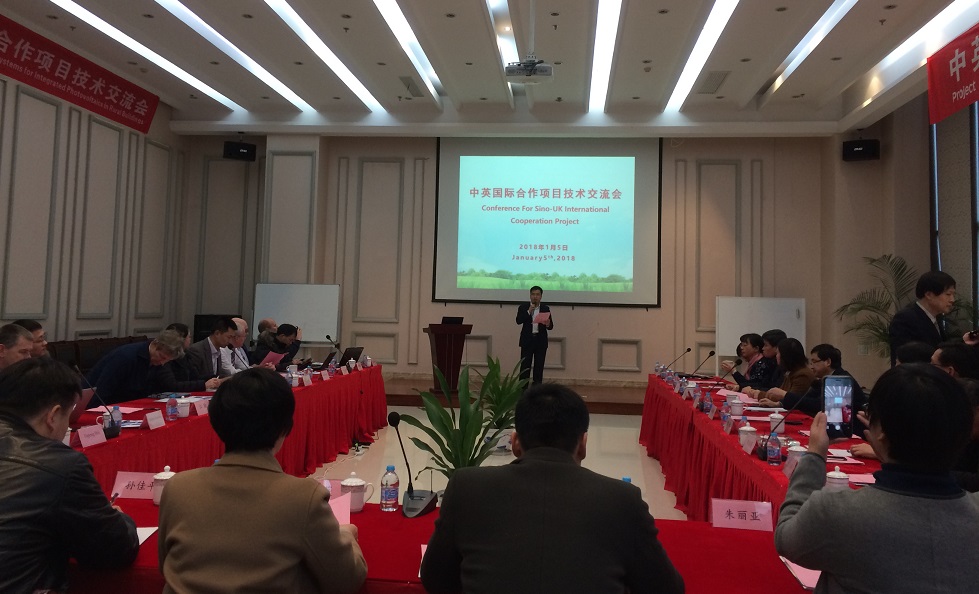
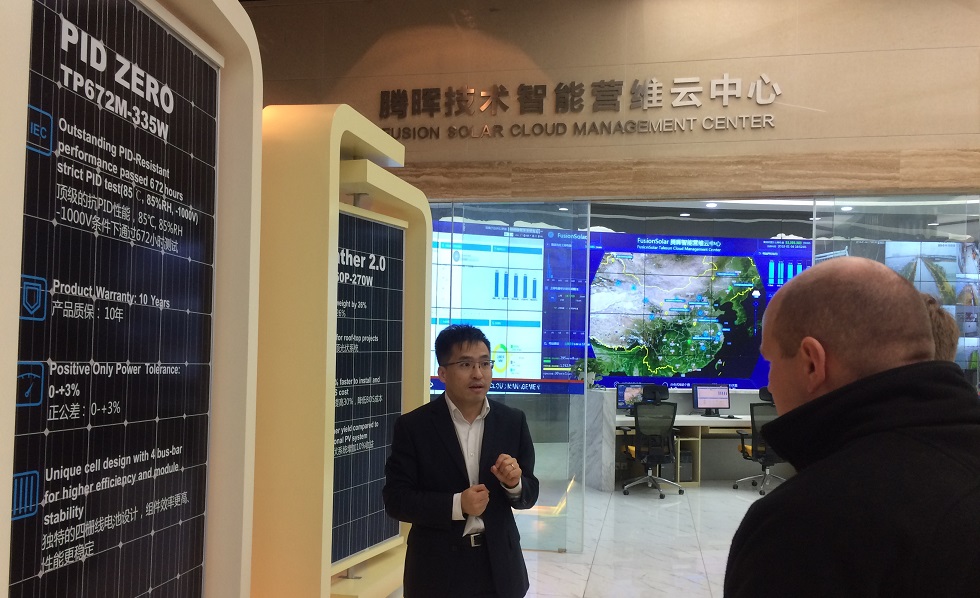
03 January 2018
Xiaoyu visited Shanghai Ocean University and gave a talk about ongoing research on sustainable energy within our group. He also explored ways to build new collaborations with colleagues at Shanghai Ocean University in areas such as marine renewable energy and marine ecosystem services.

